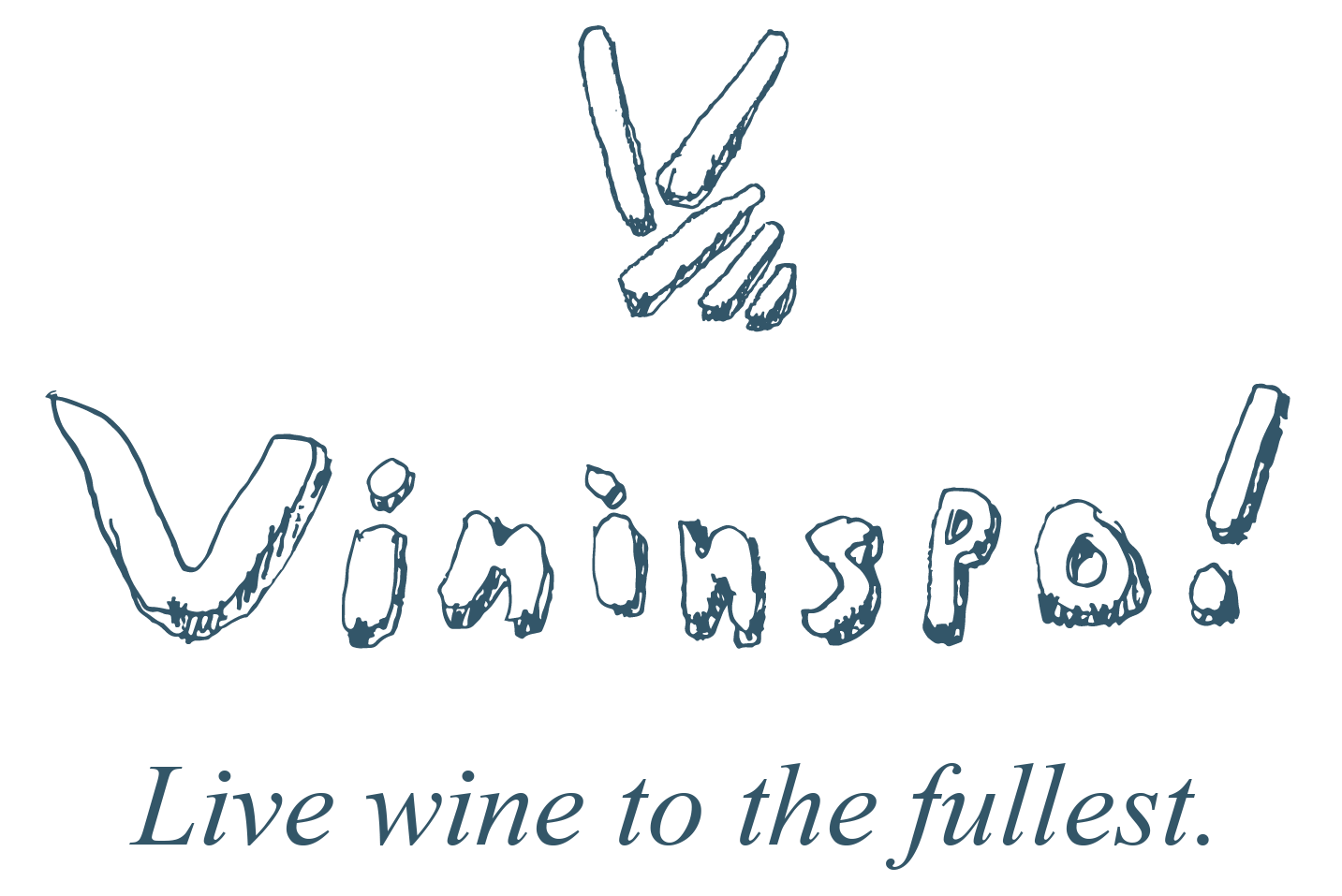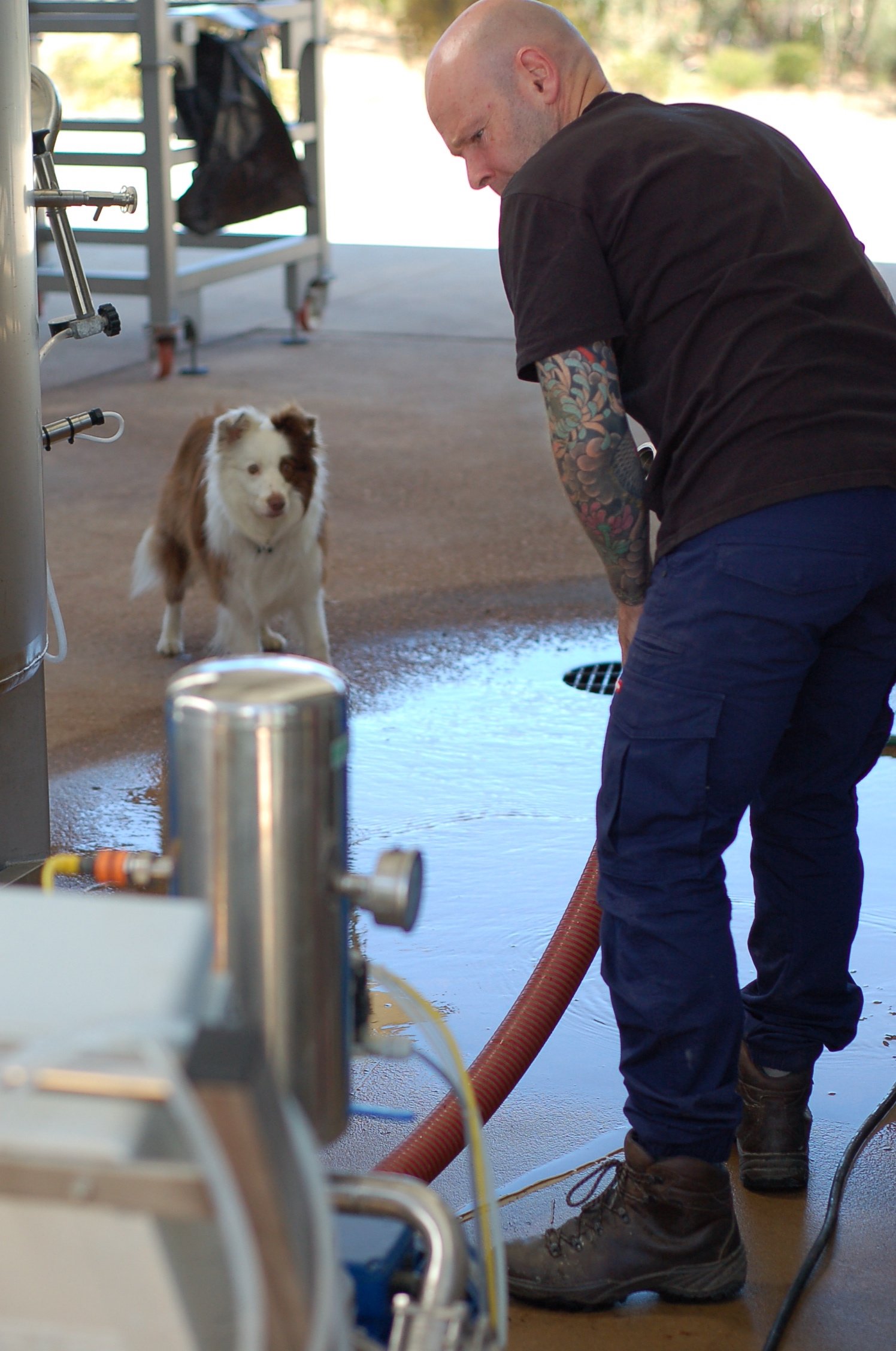McBryde stripped bare: The true story of Adelina
The truth matters to Colin McBryde, who wears his own as indelibly as his neck-to-heel tattoo bodysuit. A touched-up picture sold as genuine sells everyone short. As his trajectory from disaffected dropout to fêted vigneron shows, an authentic narrative arc lacks the smooth contours of an airbrushed curve.
“I guess the key for me is, I’m fervently keen on transparency,” Col tells me. We’re talking not long after Adelina—the Clare Valley estate he runs with his wife, Jen Gardner—won the 2023 Young Gun of Wine Vineyard of the Year award. “Ultimately, Jen’s and my plan is that we are honest in our approach of what we do, and the way that I talk about it on my personal account on social media is probably a little sanctimonious at times.”
Col’s sporadic forays in the Instasphere are characterised by unvarnished truths about the vicissitudes of winegrowing interspersed with candid introspection, witty self-deprecation and wry sideswipes at the insidious little fictions of others in the winemaking game. “I just want to tell a story of honesty,” he says. “Not everything’s pretty; things look ugly at times or not groomed or not precise, and I would rather have a story of truth and sometimes be a little less than picturesque, as opposed to these glamourised or beautified images or stories.”
Going by Col’s clear intelligence and what I take to be the sure, soulful composition of the Adelina wines, one might imagine this all came easily. In fact, the irony of his well-worn quip that he got into the wine industry through family is that it highlights how disconnected he was. In a household strictly run by his Irish Catholic mother, a new tattoo was the straw that broke the camel’s back. He got kicked out in his teens, triggering an unlikely chain of events that led from Kumeū to Clare.
“I think at high school, I was pretty much likely to go to jail if you ask my teachers,” he says. The first step in the right direction came when he was living a “bogan stoner lifestyle” at Muriwai Beach north of Auckland. He got an upgrade from part-time at KFC to full-time dogsbody at nearby winery Selaks. “[Ivan Selak] was an awesome bloke, and I was a recalcitrant, flippant teenager who did a relatively crap job,” recalls Col. “They still had me back every day and paid me my five bucks an hour, and, yeah, I learned a lot of things.”
When Eastern Institute of Technology started offering Charles Sturt University’s winemaking degree, Col enrolled and moved to Hawke’s Bay. Following the theme of inaptitude, he promptly dropped out and got a job working for “wonderful winemaker” Kate Radburnd at Pask Winery. With Radburnd’s support and direction, he started to engage more with the work. “I realised there was probably more to the industry that I could enjoy, and if I applied myself, maybe I wasn’t too bad at working in a cellar.” Radburnd put him forward for a scholarship to study winemaking at Adelaide University, which he duly took up.
That’s where he met Jen in the late 1990s. She’d relinquished a research assistant role at the University of Queensland to be closer to her Clare-based family and was doing a PhD in microbiology. Jen was also helping her father, Will, on the small vineyard he’d bought in the ‘80s on Wendouree Road East in the Spring Farm sub-region of Clare. As well as selling grapes, the family bottled small batches for family and friends under the name Adelina. “Will was this gregarious human of great nature and love, and he had stories—many,” recalls Col. “He talked well of an Auntie Adelina on their family property where he grew up in the Riverland, growing fruit.” Based on her burgeoning friendship with Col—and the fact that the reformed dropout’s commitment to wine was on its way to being consummated by a PhD in yeast metabolism—Jen would go on to suggest he lend a hand with the wines.
It wasn’t any old vineyard, with Shiraz and Pedro Ximénez plantings dating back to 1915 and Grenache from 1940. Illustrious neighbours include the Aberfeldy site, Sevenhill Cellars and Tony and Lita Brady of Wendouree—for many the ne plus ultra of terroir winegrowing in Australia. Before long, Jen and Col began dreaming of bigger things for Adelina. They nutted out a plan, pooled resources and put together their first commercial release in 2003.
The Adelina Estate wines come from the organic-certified vineyard, while other Adelina bottlings are drawn from the first-rate sites of friends with a similar farming philosophy. I asked Col about the timeline of what I’d assumed was Adelina’s gradual shift towards organic and regenerative viticulture. “It was a big change actually, rather than a slow swing,” he says, pinpointing an epiphany around 2008. He and Jen had always taken a thoughtful, hard-working approach to growing the grapes they needed for their wines—but that was a far cry from making viticulture the alpha and omega of character and quality. “For the first kind of 15 years of me being in the industry, I was really focused on what you do in a winery as opposed to what you do in a vineyard. It was like, ‘No, that’s not the right thought’,” he says. “We put the cart before the horse. And then we saw that the more work we put in the vineyard, the better the wine profited from our diligence and efforts.”
In an all-too-familiar tale, Jen has retreated from the frontline since the birth of their daughter, leaving Col—the “blow-in” at this family estate—as “the heavily tattooed, surly bloke that’s the face of it now”. But this remains a team effort that relies on Jen’s wealth of expertise and intuition. “The wines see both of our ideas simultaneously, with the changes and processes that we go through in the vineyard. Everything’s discussive.” Of course, while the plaudits tend to be unduly handed to the face of a brand, strong back-of-house nous is as important as field work when it comes to building a flourishing, sustainable business. And then, there is the benefit of complementary skills and personalities. “We’re a strong, contiguous family unit, and she balances my depression and aggression and eccentricity, etc,” says Col. “Jen’s the well-tempered, very thoughtful intellect behind my brash, short-bald-man bravado.”
Jen and Col have a couple of other outlets for their creativity, having started the Some Young Punks brand in 2005 and then launching Vinemind in 2013. Unlike Adelina, provenance and lineage are not at the heart of these well-made, well-priced wines from bought-in grapes—this is “cool booze” that riffs on Col’s irreverence and faux fanfaronade. Eye-catching imagery drawing on myriad strains of pop and counter-culture—think B-movies, pulp fiction, punk zines and tattoo art—has always featured across all the labels.
With someone else, you might read this aesthetic as a straightforward reflection of “outside interests”. With Col, it might be more accurate to think of it as a memoir in the writing, intrinsically linked to the taboo tattoo that sparked this journey and is now part of a full-body gallery. Long before tatts became de rigueur in the Australian hospitality scene, Col’s half sleeve became a three-quarter sleeve, which spawned another sleeve, which developed into a back piece—to the point where he’s now all but covered. This steadily accrued chronicle has been inked by artists in Melbourne, Sydney, Tokyo, New York and beyond. “I’m not quite sure how I got to where I am, tattoo-wise, and it’s been a hell of a trip and an exciting lesson across the world.” He likens this unpremeditated “progression of life” to the gradual awakening many of us experience with something like wine. “You start drinking it and, at some point, you realise that you’re into it. And you start moving up this ladder of different varieties or regions or appellations that start to inspire you.”
The Vineyard of the Year win, coinciding with Col’s finalist nod as Halliday Wine Companion Winemaker of the Year, prompted reflection on influential peers, many of whom have become friends. “There’s been so many people that I’ve found exciting and inspiring over the years, and this keeps growing, which is really cool.” Among the first—both chronologically and seismically—are the Bradys of Wendouree, whose generosity Col credits with teaching Adelina so much about custodianship and care of the land. “We’re so fortunate to have them on our doorstep, and they’re forthcoming with information, which is, at times, quite hard to get in the industry.”
You might have gathered that Col is the type to keep his feet firmly on the ground. His fixation with transparency seems rooted in the idea that truth is the necessary baseline for evaluation, improvement and realistic expectation. He’s often asked what’s special about what he does—a question he finds impossible to answer. If that petulant bogan stoner can make wine, anyone can; he and Jen are growing grapes and making wine using processes essentially unchanged from a couple of hundred years ago.
But if there is a secret to Adelina’s success, it’s “continual self-doubt”. “Our strength, I'd hope, would be humility about what we're trying to achieve,” Col tells me. “I’ve found that when I’ve got confident, I’ve often fallen. It’s better to remain humble and work harder than be overly confident and fall on your face, so we just try to do our best every step of the way. It’s not always sunshine and lollipops and rainbows. There are days where it’s not that fun and not that great, but the reward comes in the shape of this bottle, and you know that our approach has been honest.”





